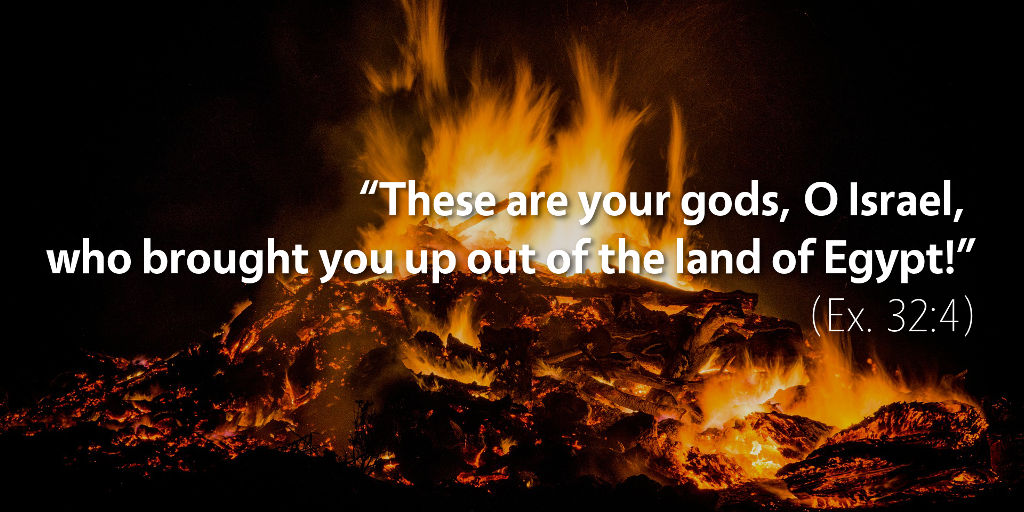Bible Readings for March 21st
Exodus 32 | John 11 | Proverbs 8 | Ephesians 1
Exodus 32 includes one of the most famous—and most tragic—stories from the history of Israel, the scene where God’s people make for themselves a golden calf to worship while Moses is receiving the law from Yahweh on top of Mount Sinai.
To understand the full significance of this story, we must recognize that Aaron does not technically encourage the people of Israel to worship different gods. Rather, after he fashions the molten gold into the image of a calf, he identifies the calf as “your gods, O Israel, who brought you up out of the land of Egypt” (Ex. 32:4). Then, Aaron proclaimed that “Tomorrow shall be a feast to the LORD” (Ex. 32:5)—that is, to Yahweh. 1
The golden calf, then, was not understood as a different god for Israel to worship. Rather, the calf was supposed to be a physical representation of Yahweh, even though Yahweh had explicitly forbidden Israel from making any graven image to represent him (Ex. 20:4–6). So, Yahweh tells Moses to leave him alone so that he may consume Israel in his wrath and then start a new nation from Moses alone (Ex. 32:10).
Moses, for his part, rises up to play the role of a faithful mediator between Yahweh and his people. He pleads with Yahweh to avoid bringing mockery from the Egyptians (Ex. 32:11–12) and to remember the covenant that he had sworn to Abraham, Isaac, and Israel to multiply and bless Israel forever (Ex. 32:13). Yahweh still commissions the Levites to strike down about three thousand Israelites for their sins (Ex. 32:25–29) and sends a plague on Israel (Ex. 32:35), but he relents from destroying Israel altogether (Ex. 32:14).
This story should stand as a stark warning against our own prideful desires to worship Yahweh in the ways that we choose. Whenever we say things like “Jesus just wants me to be happy” or “Jesus is all about grace—he doesn’t really care about this or that sin in my life,” we are fashioning for ourselves a false god to worship, just like the Israelites did with the golden calf. Calling this god Jesus doesn’t make the idolatry better—it makes it far worse.
The reality, however, is that we all make false images of God, in both big and small ways. We need, therefore, a greater mediator than even Moses. The gospel, then, is that Jesus Christ did not talk God out of destroying us, but rather he submitted to be killed in our place, taking upon himself our plagues from the wrath of God for our sin. By doing that, Jesus became our great Mediator, standing between God and us, and securing an eternal redemption through his death and resurrection.
How should the reality of our idolatry and the mediation of Jesus inform the way we approach and worship God?
1 English Bibles translate the proper name of God in the Old Testament “Yahweh” as “LORD” in all capital letters.
Podcast: Play in new window | Download (5.2MB) | Embed
Subscribe: Apple Podcasts | RSS | More

Scripture quotations are from The Holy Bible, English Standard Version copyright © 2001 by Crossway Bibles, a division of Good News Publishers. Used by permission. All rights reserved.


